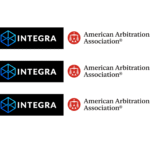In a significant shift toward digital finance, an increasing number of businesses are now accepting cryptocurrencies like Bitcoin (BTC), Ether (ETH), and XRP (XRP) as payment options. This trend spans various sectors, including coffee shops, fast-food chains, and major retailers like Microsoft and Home Depot. Payment methods often involve third-party processors and apps, simplifying the transaction process for consumers and businesses alike.
As of 2025, cryptocurrencies are firmly establishing themselves in the commercial landscape. Notably, BTC, ETH, and XRP are gaining traction not only as payment methods but also as strategic assets for companies. Each of these cryptocurrencies offers unique advantages: BTC is recognized as a store of value, ETH is known for its smart contract capabilities, and XRP is valued for its quick settlement times and suitability for cross-border transactions. Collectively, they provide a reliable combination of trust, functionality, and speed that various businesses find appealing.
For everyday consumers, using cryptocurrency for routine purchases has become considerably more accessible. Coffee shops and restaurants are at the forefront of this movement. Chains like Starbucks now allow customers to purchase drinks using BTC or ETH through platforms such as Bitrefill. Convenience store chain Sheetz has also integrated crypto payments, welcoming various cryptocurrencies at checkout. However, XRP lags behind in this area and is less commonly accepted at smaller establishments.
Fast-food joints are getting on board too. Some McDonald’s locations facilitate Bitcoin payments, and major chains like Subway and Burger King are gradually transitioning to accept cryptocurrencies, often via third-party gift card services. Notably, Steak ‘n Shake reported an 11% sales increase after rolling out BTC payments nationwide in 2025, showcasing the growing demand for crypto transactions even in casual dining.
Retail giants also see the utility in cryptocurrencies. AT&T allows users to settle phone bills using either ETH or BTC, while various online retailers, including Microsoft, Newegg, and Overstock, have embraced digital currencies for a wide range of products. E-commerce platforms like Shopify empower countless small and medium enterprises to incorporate crypto payment options easily.
The travel and luxury sectors are where cryptocurrency payments are really scaling up. Airlines and travel services are gradually offering bookings using BTC, ETH, and occasionally XRP. Emirates has announced plans to accept crypto for first-class tickets, while AirBaltic has been a pioneer in this space, processing thousands of crypto transactions since 2014. Luxury brands are also getting in on the action, with dealers like Post Oak Motor Cars accepting Bitcoin for high-end automobiles and designers like Gucci expanding crypto options in their flagship stores.
Institutional adoption is also on the rise, particularly in remittances and cross-border payments. XRP is often favored in this arena due to its efficient and cost-effective settlement capabilities. Payment processors such as PayPal and BitPay are facilitating wider acceptance of cryptocurrencies among businesses by enabling instant conversion to fiat, reducing price volatility risks.
To encourage more small businesses to accept cryptocurrencies, the integration process can be streamlined through user-friendly payment processors and solutions aimed at reducing compliance costs. Entrepreneurs are encouraged to explore these innovations to broaden their acceptance of various digital assets.
While this article does not offer investment advice, it highlights an important trend: cryptocurrencies are increasingly becoming a part of everyday financial interactions. As consumer familiarity grows and business adaptations continue, the crypto landscape is likely to evolve further, bringing new opportunities for both merchants and consumers.






